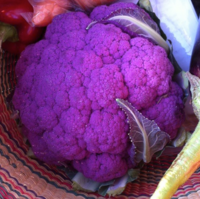
Consecutive Production of Hydroalcoholic Extracts, Carbohydrates Derivatives and Silica Nanoparticles from Equisetum arvense
Sign Up to like & getrecommendations! Published in 2018 at "Waste and Biomass Valorization"
DOI: 10.1007/s12649-017-9993-y
Abstract: Intelligent strategies should be used in biorefinery processes for the production of different high-value products from the same raw material. Focused on this, the biomass from Equisetum arvense (horsetail) was used for the consecutive production… read more here.
Keywords: production; equisetum arvense; consecutive production; hydroalcoholic extracts ... See more keywords

Hierarchical porous architectures derived from low-cost biomass equisetum arvense as a promising anode material for lithium-ion batteries
Sign Up to like & getrecommendations! Published in 2020 at "Journal of Molecular Structure"
DOI: 10.1016/j.molstruc.2020.128794
Abstract: Abstract Biomass-derived carbonaceous materials as anodes for Lithium-ion batteries have been paid much attention due to the low cost and Environmental-friendly. So far, Equisetum Arvense (EQ), wide grass as anode electrodes of Li-ion battery has… read more here.
Keywords: equisetum arvense; low cost; ion; ion batteries ... See more keywords

Dyeability and antioxidant activity of artificial silk with Equisetum arvense L. extract
Sign Up to like & getrecommendations! Published in 2020 at "International Journal of Clothing Science and Technology"
DOI: 10.1108/ijcst-07-2019-0112
Abstract: Purpose Equisetum arvense L. (Equisetum) is a weed that is very difficult to remove because of its deep roots. The purpose of this paper is to examine the dyeability and antioxidant activity of Equisetum extracted… read more here.
Keywords: antioxidant activity; dyeability antioxidant; activity; equisetum arvense ... See more keywords

Investigation of the Genotoxic, Antigenotoxic and Antioxidant Profile of Different Extracts from Equisetum arvense L.
Sign Up to like & getrecommendations! Published in 2022 at "Antioxidants"
DOI: 10.3390/antiox11071393
Abstract: The present study investigated the cyto-genotoxic and antigenotoxic effects of four different extracts of Equisetum arvense L. (common name: field horsetail) on human lymphocytes. Specifically, Soxhlet’s prepared extracts from E. arvense L., using different solvents… read more here.
Keywords: extracts equisetum; genotoxic antigenotoxic; different extracts; equisetum arvense ... See more keywords

Teratogenic, Oxidative Stress and Behavioural Outcomes of Three Fungicides of Natural Origin (Equisetum arvense, Mimosa tenuiflora, Thymol) on Zebrafish (Danio rerio)
Sign Up to like & getrecommendations! Published in 2021 at "Toxics"
DOI: 10.3390/toxics9010008
Abstract: The improper use of synthetic fungicides has raised public concerns related to environmental pollution and animal health. Over the years, plant-derived antifungals have been investigated as safer alternatives, although little scientific evidence of its neurodevelopmental… read more here.
Keywords: arvense mimosa; teratogenic oxidative; equisetum arvense; tenuiflora ... See more keywords